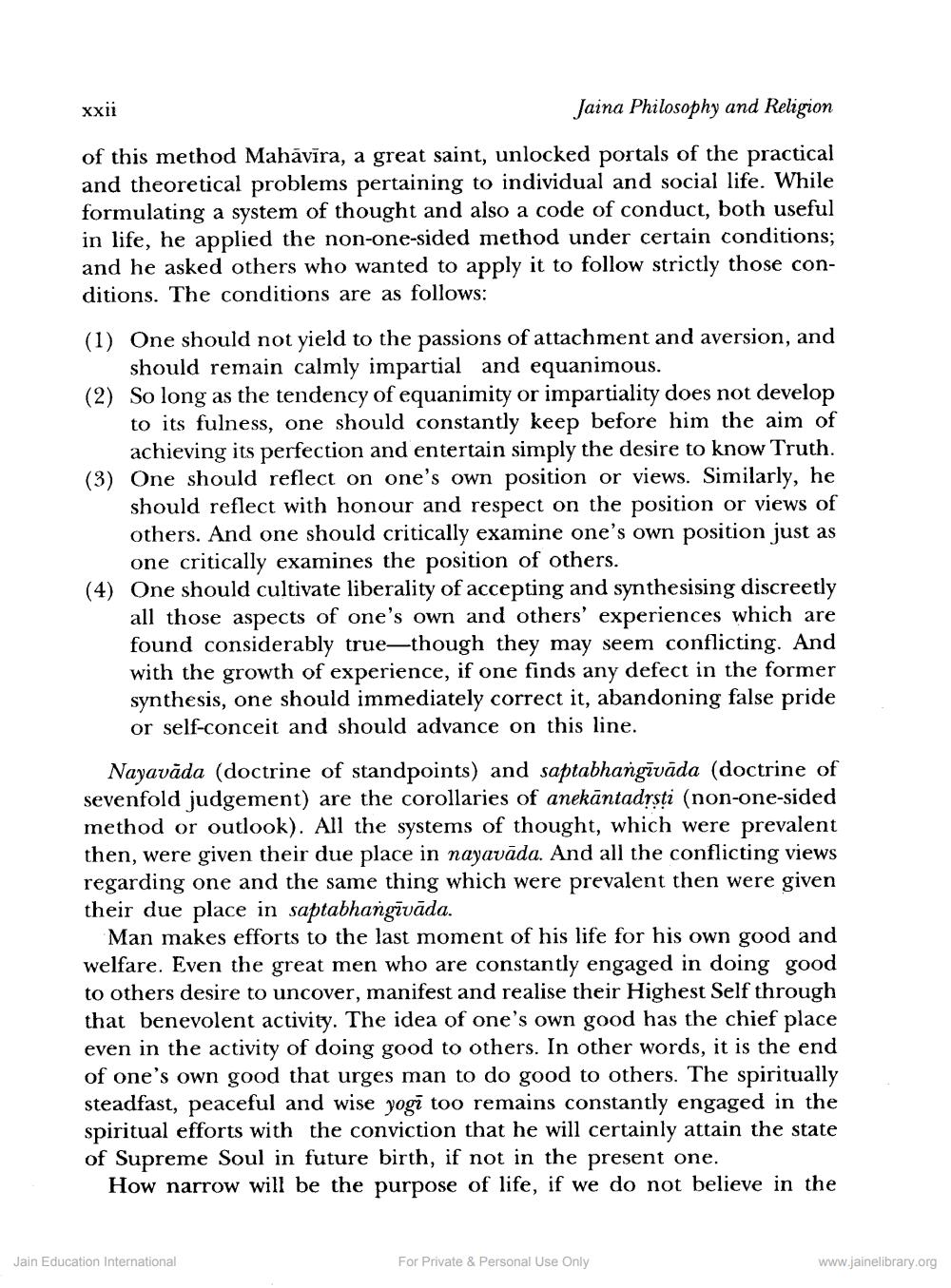________________
xxii
Jaina Philosophy and Religion
of this method Mahāvīra, a great saint, unlocked portals of the practical and theoretical problems pertaining to individual and social life. While formulating a system of thought and also a code of conduct, both useful in life, he applied the non-one-sided method under certain conditions; and he asked others who wanted to apply it to follow strictly those conditions. The conditions are as follows:
(1) One should not yield to the passions of attachment and aversion, and
should remain calmly impartial and equanimous. (2) So long as the tendency of equanimity or impartiality does not develop
to its fulness, one should constantly keep before him the aim of
achieving its perfection and entertain simply the desire to know Truth. (3) One should reflect on one's own position or views. Similarly, he
should reflect with honour and respect on the position or views of others. And one should critically examine one's own position just as
one critically examines the position of others. (4) One should cultivate liberality of accepting and synthesising discreetly
all those aspects of one's own and others' experiences which are found considerably true—though they may seem conflicting. And with the growth of experience, if one finds any defect in the former synthesis, one should immediately correct it, abandoning false pride or self-conceit and should advance on this line.
Nayavāda (doctrine of standpoints) and saptabhangīvāda (doctrine of sevenfold judgement) are the corollaries of anekāntadysti (non-one-sided method or outlook). All the systems of thought, which were prevalent then, were given their due place in nayavāda. And all the conflicting views regarding one and the same thing which were prevalent then were given their due place in saptabhangīvāda.
Man makes efforts to the last moment of his life for his own good and welfare. Even the great men who are constantly engaged in doing good to others desire to uncover, manifest and realise their Highest Self through that benevolent activity. The idea of one's own good has the chief place even in the activity of doing good to others. In other words, it is the end of one's own good that urges man to do good to others. The spiritually steadfast, peaceful and wise yogi too remains constantly engaged in the spiritual efforts with the conviction that he will certainly attain the state of Supreme Soul in future birth, if not in the present one.
How narrow will be the purpose of life, if we do not believe in the
Jain Education International
For Private & Personal Use Only
www.jainelibrary.org




